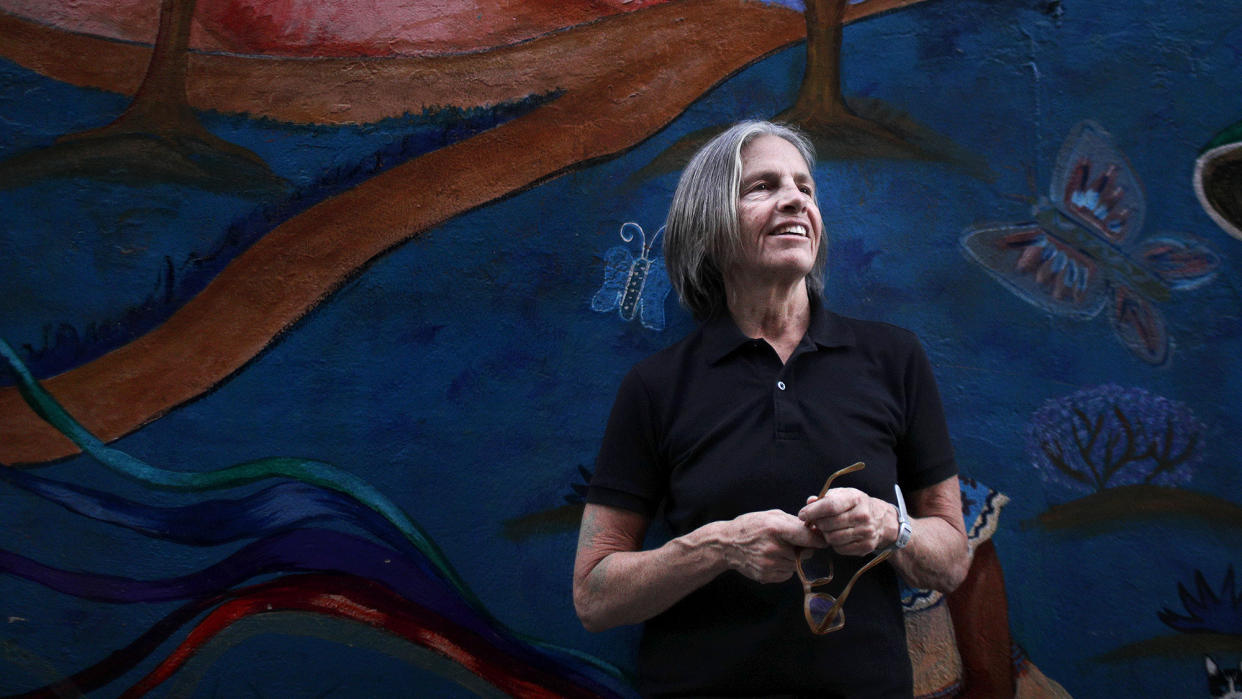6 queer poets to read whenever but especially now

No one needs an excuse to read poetry. But, should you absolutely, positively need a reason to do so, April being National Poetry Month is a fine one. These six poets are all queer, but there is no sameness to their verse. Their styles are distinct; their storytelling is too.
Natalie Diaz
The English language is a battlefield in Diaz's poetry. It is where she goes to wring sense from her existence as a Mojave-speaking Akimel O'odham Native American. "In her poetry, informed by Fort Mojave, the reservation on which she grew up, Diaz examines a world that's been complicit in the erasure of her people, a world of which she is part and a world for which she has mixed feelings," said The Rumpus. Her 2021 book, "Postcolonial Love Poem," won the Pulitzer Prize. Her poems' intent: reclaim both language and pleasure. "Language is often the first thing the colonizer takes, language and land, because language is our body in a dangerous communication," Diaz said to The Rumpus. "What happens — not 'what does it mean,' but what happens — if I dare invoke pleasure on a public page with this body?"
Jericho Brown
You can nearly feel the creative act happening as you read Brown's poetry — he very clearly has a soft spot for invention. Born Nelson Demery III in northwestern Louisiana, he changed his name to Jericho Brown. He likens his metamorphosis to the way singers like Beyoncé and Diana Ross become idealized versions of themselves. "They have a goal in mind of what they want to look like and sound like and who they want to be," he said to French Quarter Journal. "Little by little, they become that person. I think that’s possible for all of us." He walks that creation walk: Brown invented a new poetic form, "the duplex," for his Pulitzer Prize-winning 2019 collection, "The Tradition."
Eileen Myles
"All utterances are created equal in Myles' voice, the asides are as important as any rise or fall in the action," said Cedar Sigo of Eileen Myles' "Inferno" on Literary Hub. Such seamlessness is a through line in Myles' work. They have been working in a variety of literary idioms since the late 1970s. Nonfiction; fiction; and, of course, poetry. Myles has always been beloved by the focused few — queers, feminists and obsessives of New York in the 1980s and '90s. Then, around 2015, Myles' visibility soared. (You know you have hit a kind of mainstream when the New York Times Magazine does an extensive profile). They might be counterculture; they are most certainly not punk, to be clear. "I keep getting called a punk poet in the press, because they can't say dyke," they said in the New York Times Magazine profile.
Ocean Vuong
The technical prowess of his verse is stunning. But Ocean Vuong, with his thoughtful presence and attentive words, has also become a guide for young creatives and seekers of all stripes. As he said on the On Being podcast, "I think, even consciously, when I read or give lectures or when I teach, I lower my voice. I want to make my words deliberate. I want to enter — I want to take off the shoes of my voice so that I can enter a place with care."
Vuong's debut book of poems, "Night Sky with Exit Wounds," focuses on his upbringing in Vietnam and the Vietnam War, a war that happened before his birth. His second book, the novel "On Earth We're Briefly Gorgeous," solidified his literary standing, it being a moving epistolary novel of letters from a son to his illiterate mother. Vuong's most recent poetry collection, 2022's "Time is a Mother," is "an extensive homage to motherhood and migration … an accumulation of loss, intersectional identities and love," said Camila Hernández in Nouse.
Pat Parker
Decades before the Black Lives Matter movement centered racial justice at a grand scale, Pat Parker was lobbying for the cause from the West Coast with her poetry and activism. As David B. Green Jr. said in the Journal of Lesbian Studies, "Love and justice are interlocking themes that undergird and motivate the poetry and activism of the Black lesbian feminist Pat Parker."
Parker wrote five books from 1972 to 1989, including "Womanslaughter," her righteous homage to her older sister who was murdered by her husband. Parker died young, at 45. Her memory lives on in such institutions as the Pat Parker/Vito Russo Library at the LGBTQ Center in New York City and the annual Pat Parker Poetry Award, which honors a Black lesbian poet.
Franny Choi
Cyborgs; femmeness; artificial intelligence: Franny Choi interrogates what it means to inhabit an actual — and an imagined — body. "I'm always drawn to the language of the body because that language, which I was born into, has completely determined how I've been allowed to imagine myself," said Choi to The Paris Review. They inhabit that tension in 2019's "Soft Science," a science fiction-minded collection of poems that grapple with the intersection of language and technology. "I think that I want to learn how to live in a dynamic and fruitful and sexy relationship with the body," Choi said.
Choi was also the cohost, along with poet Danez Smith, of the first seasons of VS, a Poetry Foundation podcast. There, the two talked about the joyful nitty-gritty of not only poetry, but the poets' wellspring, life.

